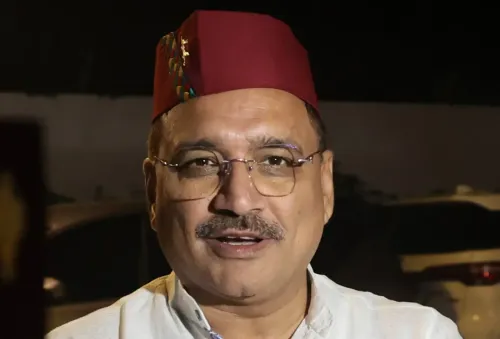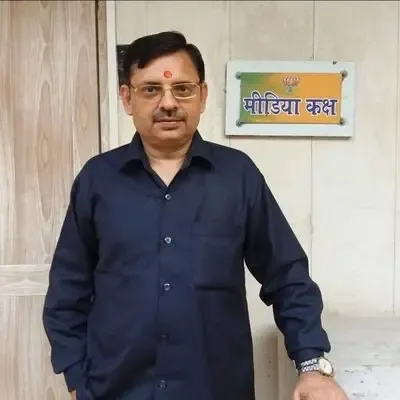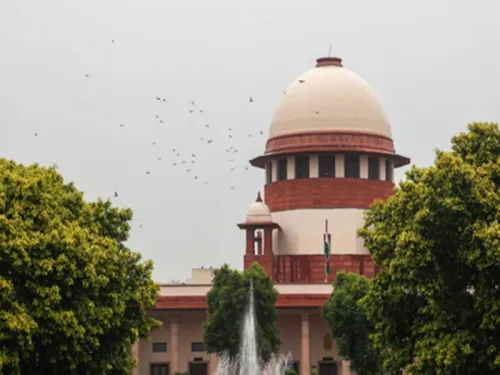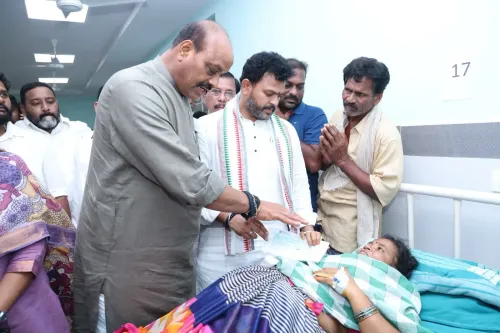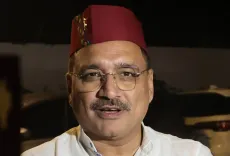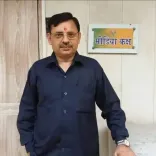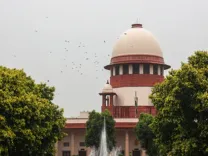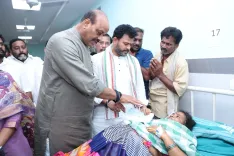Is Demographic Invasion a Reality? VP Dhankhar Raises Concerns on Illegal Migration
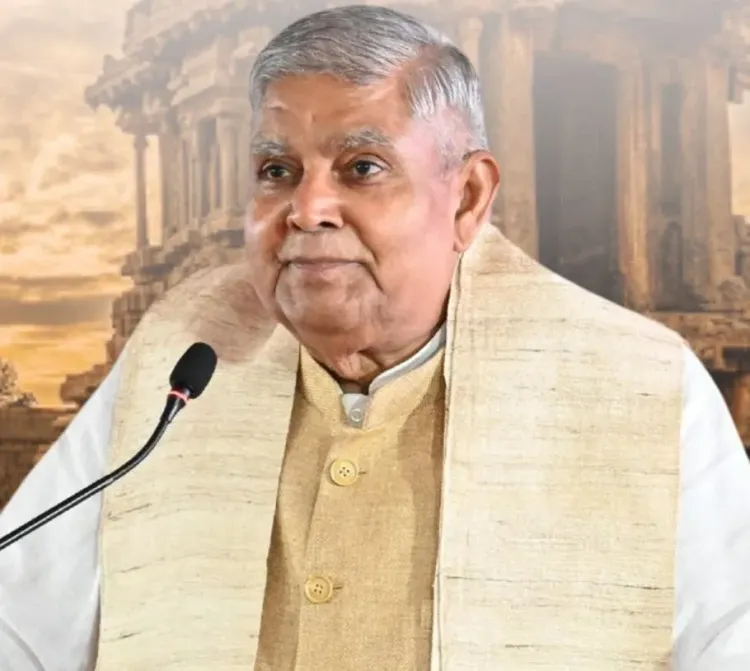
Synopsis
Key Takeaways
- Peace is crucial for democracy.
- Illegal migration poses existential threats.
- Demographic manipulation is termed as an invasion.
- Caste-based enumeration is a milestone for governance.
- Authentic dialogue is essential for societal growth.
Mumbai, May 28 (NationPress) During the convocation ceremony of the International Institute for Population Sciences (IIPS), Vice President Jagdeep Dhankhar delivered a powerful address that covered various topics including national security, demographic changes, caste-based enumeration, and India’s civilizational identity.
In light of current governance and geopolitical landscapes, Dhankhar raised serious concerns regarding illegal migration, forced religious conversions, and the manipulation of demographic ratios.
The Vice President emphasized the critical role of peace in sustaining a thriving democracy. He stated, “Peace is quintessential, fundamental for the survival of democracy. Never forget, peace is secured from a position of strength.”
Highlighting the delicate balance between security and freedom, Dhankhar remarked, “Democracy can blossom and prosper only in peace that is earned through strength, effective security, economic resilience, internal harmony.”
He cautioned that history demonstrates that lasting peace is achievable only when nations are ready to defend themselves: “Invasions can be thwarted and peace secured only when we are ever ready for war. Bharat has sent a global message. No longer shall we tolerate terrorism. We will liquidate it and destroy the source of it.”
Addressing issues of internal security and social unity, Dhankhar labeled illegal migration and forced religious conversions as existential threats. He explained that orchestrated demographic shifts are part of a broader agenda, stating, “When demographic balances are manipulated not by organic evolution but by sinister orchestrated design, then it is no longer a question of migration — it is a question of demographic invasion.”
Referring to official data, he expressed concern: “Bharat has suffered it. There are millions of illegal migrants. Can we suffer from them? We need people in this country who are committed to our civilization, who believe in ‘Bharatiyata’, who believe in our nationalism, who are prepared to lay down their lives for the nation.”
On religious conversions, Dhankhar warned against the “weaponization of faith”: “Equally disturbing, worrisome, of deep concern is the weaponization of faith through coerced or induced conversion. Where belief is replaced by inducement, every belief has to be voluntary, optional.”
In a strong endorsement of government initiatives, Dhankhar lauded the inclusion of caste-based enumeration in the upcoming census, calling it a significant step toward equitable governance. “This will be transformative.”
He emphasized the importance of using data to address inequalities, stating, “If inequalities are there, they generate and breed inequities. That is not the essence of governance...”
Calling for a revival of genuine public discourse, the Vice President invoked India's rich spiritual and intellectual traditions: “Authentic discourse is our core civilizational value. We cannot have rhetoric. We cannot have jingoism...”
He differentiated between the inclusive nature of Hinduism and majoritarianism, asserting, “The Hinduism majority deeply rooted in the civilizational spirit has never been guided by majoritarianism. These impulses are antithetical to us.”
In closing, Dhankhar outlined a vision for India's future based on the “three Ds”: Demography, Democracy, and Diversity.
“These three Ds define the soul of new Bharat... Demography represents the dynamic human capital that fuels the engine of progress. Democracy provides a robust framework for collective decision-making... Diversity? India represents to the entire world what diversity is.”
He urged institutions like IIPS to utilize their research to “awaken those who need to address these challenges that have taken monstrous dimensions,” concluding that population data must be used not only for development but also to secure the nation’s social and cultural harmony.

